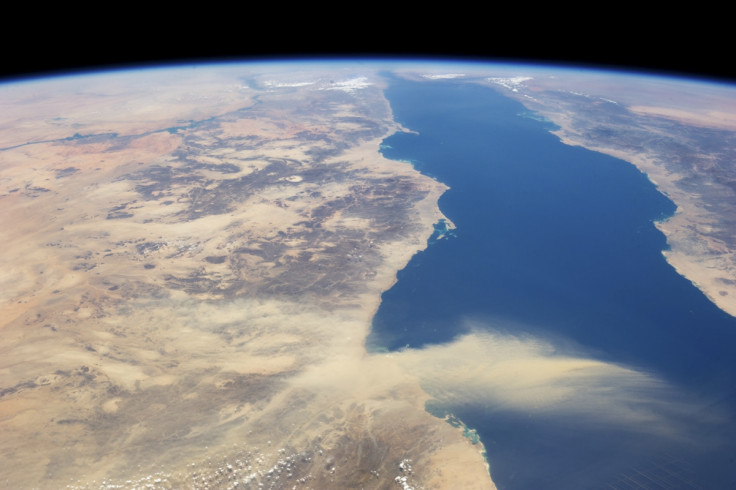Mysterious Red Sea 'cannon' earthquakes the result of active fault and not magma

Rumbling sounds that emerge from the Red Sea had for years been believed to have originated from magma seeping through the Earth's crust, but new research suggests that it may be the result of an active fault that lays below a 10km thick igneous rock.
The sounds had been a point of curiosity for the people of Abu Dabbab, Egypt, but Sami El Khrepy of King Saud University in Riyadh, Saudi Arabia and his colleagues have offered a new solution.
They believe that the large layer of rock acts as a "broadcaster" of sorts, which allows the full sounds of the seismic movement to move through it without dampening the noise. The high-frequency sounds can then be heard by the people of the region, with El Khrepy adding that "volcanic origin of the seismicity is unlikely, and the area is not expected to be subjected to volcanic hazard."
The study, which is published in the Bulletin of the Seismological Society of America, "is the first detailed look at the seismic tomography in this region of Abu Dabbab's cannon earthquakes," the lead author stated.
The researchers came to their conclusion by combining data from local earthquake monitoring research with local and regional figures from the National Seismic Network of Egypt (ENSN).
With the two sets of data, they then applied seismic tomography – a technique which uses data from the speed of seismic waves that has travelled through several types of rock to determine a 3D map of the geological features of the region that they were studying.
As a result, they were able to conclude that the earthquakes come from a line from the coast of the Abu Dabbab region which extends into the Red Sea, with the seismicity pattern being "arc-shaped in depth, confined to the dome-like structure of the rigid igneous body that formed during the Precambrian era'' above an active fault, El Khrepy added.
"Based on the new results and also the historical data, we report that the confined seismicity in this zone is of tectonic, and not volcanic, origin," El Khrepy concluded.
© Copyright IBTimes 2025. All rights reserved.






















